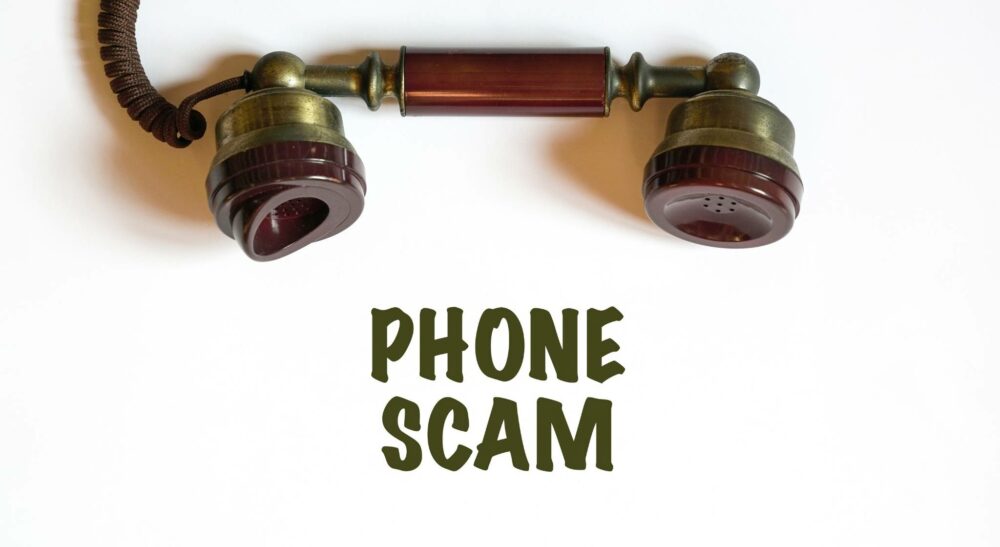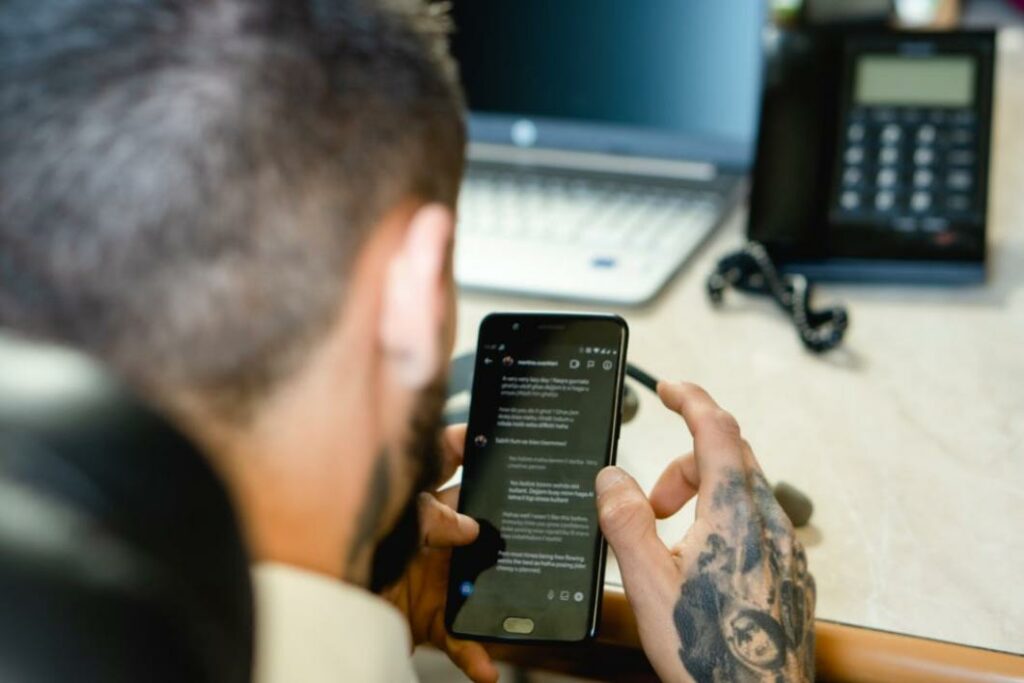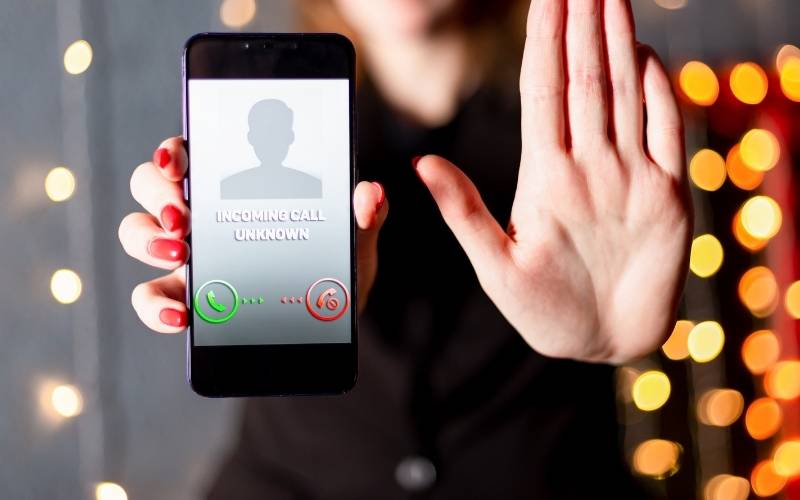The Smartphone Company Which Allegedly Defrauded More Than 10 Million from Innocent Users
Since so many firms debuted and introduced Android phones eight years ago, they have come out of hiding.
One of the many “We also have an Android” phone firms was Saygus, and the company advertised a product called the “V phone” but never really produced it. In 2021, the U.S. The Department of Justice was suing the founder of Saygus, Chad Sayers, for $10 million for securities fraud.
Chad Sayers started Saygus, an American mobile app developer with a base in South Jordan, Utah. Saygus allegedly created the VPhone and V2, two smartphones that were never commercially successful. The U.S. Dept. of Justice filed a case of a lawsuit in the District of Utah on April 20, 2021, alleging a $10 million securities fraud.
Scams involving investments sometimes make guarantees of large payments, quick cash, or both. Always be wary of investment opportunities that claim to offer a high return with little to no risk because they almost certainly involve fraud.

Latest News & Scam Alerts




The Latest 411 on Current Day Cell Phone Scam

Smishing: A Whole New Level of Scams & Frauds
Results show that fraudsters are shifting focus from account takeovers to scams where customers are exploited as a week link
KPMG 2019 Report
If you’re someone who wants to protect your financial data, then you’re definitely at the right place. We can give you the best practices in identifying red flags as well as help you in recovering your stolen money from scammers!
Table of Contents
The Case of Saygus V Phone
The 3.5-inch touchscreen and slide-out keyboard Saygus V Phone was first shown off in 2009, but the phone was never released. The VPhone won the Best of Innovations Award for Wireless Handsets during the 2010 Consumer Electronics Show.
Saygus created a second gadget he termed V2 (later called V’- but still known as the V Squared). At CES 2015, the V2 smartphone was unveiled and was anticipated to release in the first quarter of 2015. In January 2015, Saygus accepted direct pre-orders for the product. The Saygus V2 crowdfunding campaign was started in June 2015, and the company blamed production problems for the delay in shipping the finished product to pre-order consumers. There had been no device deliveries to customers as of August 2017.
The U.S. Attorney’s office in Utah has filed a securities fraud charge against a Utah entrepreneur who for years promoted a novel new smartphone but never produced one. A fresh filing reveals. According to the Justice Department, Chad Leon Sayers approached about 300 investors to contribute $10 million to Saygus while promising “imminent billion-dollar success.”

The U.S. Attorney’s office in Utah referred to this practice as “Ponzi-like” because instead of using the money received to build the promised smartphone, the investor paid personal costs, debts, and older investors with money raised from newer investors. Sayers is accused of spending $2.17 million of the cash raised on office rent, around $800,000 on legal fees, $500,000 on other expenses, $145,000 on entertainment, shopping, and personal care, and roughly $30,000 on his own credit card.
The U.S. The Attorney’s office claims that Sayers started soliciting the cash in 2006 and used investor newsletters, emails, Twitter, and other social media to convince people to buy the phone and provide them “updates” about its launch.
In 2009, Saygus promoted its first VPhone, which included a sliding keyboard, and in 2015, at the International Consumer Electronics Show (CES), it displayed what it claimed to be the Saygus V2. However, neither did that phone ever materialize. The Saygus saga has been closely followed by Android Police for several years (they even have a distinct Saygus section! ), and their archives contain many of the strange turns that this story takes.

Insights Into The Saygus Scam
As of yesterday, Chad Sayers Saygus , the founder of the wholly fictitious mobile phone company Saygus, was charged with running a $10 million fraud operation, putting an end to the biggest mobile phone mystery of the 2010s.
From 2009 through 2016, Saygus “had” a number of phones that were prototypes that the business displayed at trade exhibitions and went on press tours with. Real evidence of production runs was never found. According to the U.S. Sayers and associates stole $10 million from investors and used it to fund their lifestyle without ever having any intention of releasing a product.
On the new Android 1.6 smartphone, Chad Sayers, a slick-talking marketer, claimed that his proprietary video compression codec could make two-way video calling over 3G networks viable in a way that hadn’t previously been conceivable.
It made sense. However, the phone kept failing to work. Sayers’ ingenuity was in producing just enough prototypes to demonstrate them and keeping them perpetually on sale.
Since so many firms debuted and introduced Android phones eight years ago, they have come out of hiding. One of the many “We also have an Android” phone firms was Saygus, and the company advertised a product called the “V phone” but never really produced it. In 2021, the U.S. The Department of Justice was suing Chad Sayers, the creator of Saygus, for $10 million for securities fraud.

A few features of the first Saygus VPhone, which were undoubtedly intriguing at the time, were introduced in 2009. It included a pull-out keyboard, an early version of Android, a 3.5-inch touchscreen with 800 by 480 pixels, and several obviously Verizon-sponsored features. The Verizon Open Development Initiative included this phone, which would later become the first two-way video calling-capable phone in the United States.
Customers never received this phone in the mail. Saygus unveiled the V2 or V Squared at CES 2015 despite not being able to deliver the first phone. Pre-orders for the phone began in January 2015, and in June same year, a crowdfunding effort was started. Never was a phone delivered.
The U.S. District Attorney’s Office for the Utah District has filed a charge against Chad Leon Sayers for securities fraud, claiming that it “started at headquarters from 2012 until 2020,” according to the most recent development in the case. Mr. Sayer requested roughly 300 investors to contribute about $10 million in securities offerings in the District of Utah and elsewhere.
Sayers offered or tried to make an investment in Saygus after predicting “an imminent billion-dollar success with the introduction of a breakthrough new smartphone.” “During the relevant period, Mr. Sayer has utilized investor funds to cover personal costs and to compensate existing investors with funds from new investors without the authority, knowledge, or approval of investors,” the last sentence reads.
Sayers allegedly “designed and intended a system to defraud investors and obtain money and property by substantially false and fraudulent pretenses, representations and promises and omissions of material facts,” according to the documents. According to reports, this fraud “will continue until 2020” and is claimed to have started in or around 2012.
Legal records made public this week reveal that the Saygus device certification for Verizon lapsed in 2013. Sayers allegedly “used the Saygus business accounts on a regular basis for personal spending, including, but not limited to, paying his own personal loans, credit card bills, personal rent, personal legal fees, and personal automobile payments,” according to the paperwork.
If you’re a victim of a similar scam please get in touch with us to that we can help you get your money back!

Do you suspect that someone had scammed you?
If you have any suspicion of a scam or phishing attack, then you can rely on EZChargeback to help you with protection, mitigation, and fund recovery.
You will feel safe knowing that experts with years of experience will be guiding you!

How much did they steal from innocent individuals?
It is alleged that Sayers paid $ 2.17 million in office rent and $ 2.7 million in past investor payments with funds from new investors.
Additionally, it is claimed that the defendant spent $ 10,000 per month on a “consultancy contract,” $ 10,000 per month on “a building sign,” and $ 42,000 per month on “renting 25,950 square feet of office space for around ten employees.”
The smartphone company allegedly defrauded investors and spent $1.7 million on American Express, $500,000 on legal expenses, and $800,000 of investor money on “litigation settlements with other investors.” Approximately $ 30,000 for the defendant’s personal credit card and $ 145,000 for “shopping, amusement, dining, and personal care” are also included on the list.
According to the Justice Department, Sayers had been requesting funding from investors to launch a mobile phone since 2006, which was at least eight years before the Saygus V2 was initially displayed at CES 2015. The Verizon sales and support agreement and device certification that the CEO allegedly gained access to both expired in 2013. You can look through the history records of every issue that has kept the business’ phones from sending to clients for six years.

A jury trial is scheduled to go for one week for the Saygus scam
Beginning on August 30, a jury trial is scheduled to go for one week. We can finally name Saygus for what we all assumed it was if Sayer’s charger holds out.
It’s a good thing transitivity exists. The smartphone company to scam investors million cases is listed as scheduled for the Jury Trial by the U.S. Attorney’s Office for the District of Utah. This trial is scheduled to start at 8:30 a.m. on August 30, 2021, in front of Judge David Sam.
History has proven that Sayers is tenacious, so it is likely that he will wait to announce a new, significantly improved phone or whatever he conjures up until his most recent failure in the technology press is only a distant memory. Whatever your opinion of their inability to bring products to market, Saygus, and Sayers have shown surprising skill in persuading the tech press that the Saygus phone is not a scam but rather the victim of a sector rife with regulatory barriers and powerful players determined to keep the underdog down. But it’s obvious that this story has run its course and failed.
But you’d have to be crazy to give these men money after years of blatant failures, ongoing mockery in the media, and puzzling months of complete radio-quiet. And perhaps the adjective “mad” best describes Saygus at this point: the delusion of someone who has advanced enough to believe their own foolishness. Saygus may have begun as a quick-rich plan, but something tells me it evolved into a confirmation of one man’s conviction that, if only he had the money, he could take down the powerful.
Key Takeaways!
So, is Saygus a massive smartphone company alleged to be a scam investors scam, a plan hatched to rely on a gradual trickle of funding from investors and crowd funders without ever intending to really release a product?
If it is, Saygus has made a point of giving the impression that the business truly plans to produce a phone. Its prototypes, which I have personally used, are useful but otherwise quite ordinary—even going so far as to rent up a portion of an office complex in Utah and construct a massive Saygus logo on the structure.
These aren’t the behaviors of a con artist attempting to defraud a few trusting customers of their crowdfunding funds. Saygus is seeking large investors while playing the long game, and the company has some credibility to give them in the form of prototypes and a professional-looking facility.
do you need help?
A lot of those who contact us have questions and concerns about their personal and business data being compromised. We aim to arm you with the legal and technical know-how in the fight against scams. Also, we will be able to refer you to top scam recovery agencies.
Please fill up the form. Rest assured that our support team will get in touch with you





